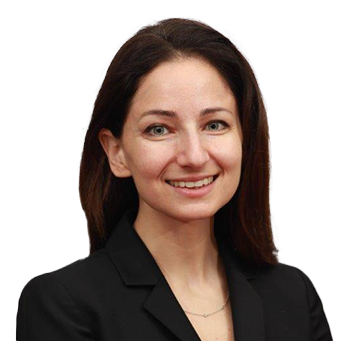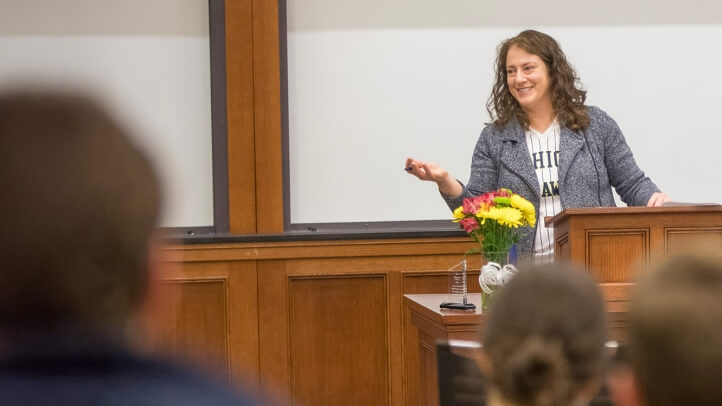How the Program Works
Via intensive critiques from their professors, students learn how constantly revising their work product makes their analysis more precise and their arguments more persuasive. This close relationship with the Legal Practice professors helps prepare students for the interactions they’ll have with senior attorneys and clients when they enter practice. Second- and third-year students assist by serving as mentors for the students.
The yearlong Legal Practice program comprises three separate courses: Legal Practice: Fundamentals of Legal Writing and Analysis and Legal Practice Skills I in the first semester, and Legal Practice Skills II in the second. The combined course sequence is graded at the end of the second semester on an Honors/Pass, C-/D+, D/Fail basis.
Successfully completing Legal Practice is required for graduation.
About the Courses
-
First Semester
The two first-semester courses introduce students to the fundamental analytical and writing skills that they’ll continue developing over the rest of the year, as well as other essential lawyering skills.
Students are expected to prepare at least one extensive written assignment, learning to present objective written analysis of a legal problem to a client or a fellow attorney, and to persuade their reader that their analysis is complete and accurate.
In doing so, students come to appreciate how a commitment to scrupulously thorough writing promotes analytic rigor. They are also exposed to and often prepare additional types of customary legal work product, such as client letters and professional emails.
Students also receive their initial exposure to legal research sources and strategies, learning how to find the law they need to adequately advise and represent their clients.
Throughout the first semester, students are placed in the role of a lawyer representing a client in assorted factual circumstances, and are then taught how and why lawyers might bring to bear various skills in those situations. These skills can range from client interviewing to counseling to investigating and assessing facts.
-
Second Semester
The second semester of Legal Practice continues the client-based focus on developing essential skills, shifting students into the role of an advocate. In the classroom, students develop skills in advocacy and persuasive argument through instruction in pre-trial procedures, pleadings, and drafting pre-trial or appellate motions and briefs.
These assignments are also designed to challenge students’ ability to develop research strategies and to continue to refine their research skills. They then have one or more chances to make oral arguments to a judge or panel of judges.
Students are also introduced to transactional practice and skills, such as learning how to negotiate with other parties in a transactional setting followed by drafting agreements to memorialize the results of those negotiations.
As the course progresses, students are repeatedly reminded of how their professional and ethical obligations affect the choices they make when representing clients.
Our Faculty
The Michigan Legal Practice professors share a common goal of ensuring that all Michigan Law students are prepared to practice, wherever they might work in summer internships and after graduation.
To help students achieve their academic and professional goals, the Legal Practice faculty draw on more than 200 years of combined teaching and practice experience. They write books, publish articles in scholarly and practitioner journals, frequently present their work at academic conferences, and play important roles with peer-reviewed legal writing journals and the two national legal writing organizations.




















